The coward punch – also known as a “king hit” or “one-punch assault” – is usually dished out in the early hours by a drunk young male after a night on the town. The surprise attack can leave victims with broken bones, ongoing cognitive problems, in a permanent vegetative state, or dead. But will new laws introduced in Tasmania this year work to reduce the scourge?
IT often happens at nightclubs or among young men partying with friends.
The potentially-deadly “coward punch”, also known as the “king hit”, has prompted nationwide condemnation and the sweeping introduction of anti-one-punch assault legislation.
With Tasmania not “immune” from the scourge of late night one-punch assaults and fatalities, Attorney-General Elise Archer announced legislation in March to “stamp out the coward’s punch” — following the tragic death of university academic Stewart Williams last year.
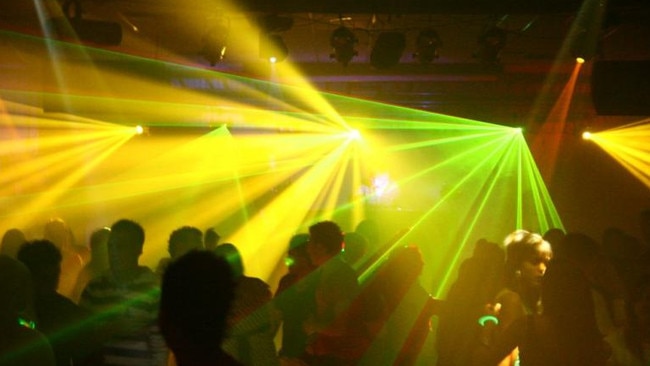
But will those legal changes make any difference to the number of alcohol-fuelled attacks at the hands of young men on nights out?
According to the scores of offenders still marching before Supreme Court judges, the coward punch problem is far from over in Tasmania.
A deathly blow
The coward punch is often described as a forceful blow to the head or face that often takes the victim by surprise, without any time to prepare or defend themselves.
Scores of young Australian men, including some Tasmanians, have died this way over the past 20 years.
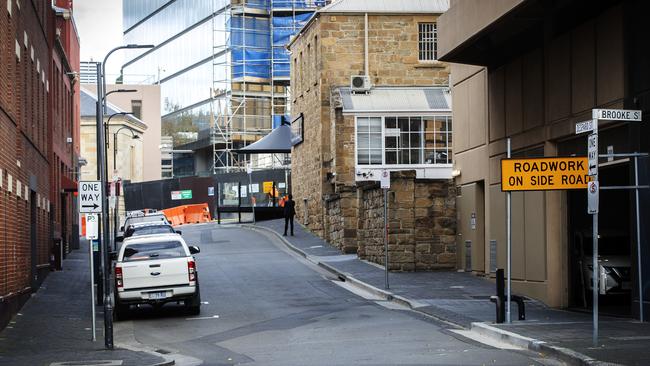
According to a 2019 report by the Victorian Institute of Forensic Medicine, 94 per cent of one-punch of victims are males, 73 per cent of fatalities involved alcohol, and the assaults usually occurred on weekends between midday and 3am, at places like bars, clubs and homes.
The report explains the punch itself can cause devastating or fatal brain injuries.
But sometimes, it’s not the punch itself that kills, but the victim’s resulting fall to the ground.
Either point of impact can fracture the skull and bruise the brain, causing bleeding and damage to tissue that swells through skeletal openings.
The results can be death, ongoing mental and physical disabilities, or young men who spend the rest of their lives in a vegetative state, cared for in nursing homes.
Stamping it out
On March 17 this year, the Tasmanian Government introduced changes to the crime of manslaughter, following Mr Williams’ death in February 2019, after an “act of bravado” at Mobius nightclub from teenager Beau Wayne Kelly.
Kelly’s single blow, “delivered with considerable force”, left the University of Tasmania lecturer with multiple facial fractures and heavy and uncontrolled bleeding before he went into cardiac arrest.
Ms Archer said the new legislation closed a “loophole” in Tasmanian law allowing offenders to avoid manslaughter convictions if they successfully argued the death was accidental.
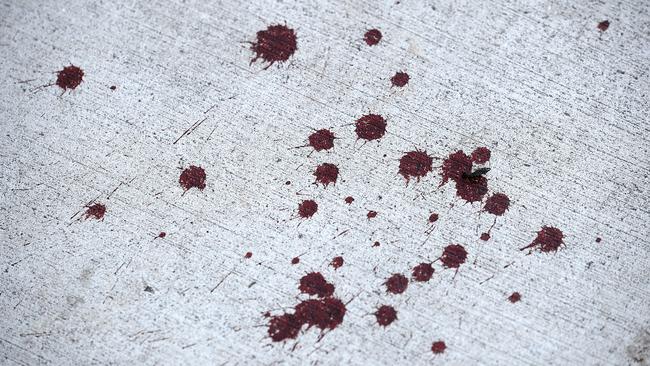
She also said the reforms meant offenders couldn’t use self-induced intoxication as a point of mitigation to reduce the severity of their sentences.
The tightening up of manslaughter legislation was notably different to the one-punch laws introduced interstate in recent years, such as the eight-year minimum jail terms in NSW and minimum 10 years in Victoria for one-punch assaults causing death.
Will the new laws work?
University of Tasmania criminal law academic Jeremy Prichard isn’t convinced the legislative changes to manslaughter will reduce any nightclub assaults.
Dr Prichard said in fact, the changes could bring about undesirable results, with attackers potentially jailed for “chance” deaths that were unforeseeable.
“Imagine a situation where, for example, a secondary school boy dies during a scuffle because he had a rare medical condition that was not known to him or anyone else,” he said.
“The other schoolboy involved in the scuffle may have committed an unlawful assault, but I’m not sure the community would want him to be found guilty of manslaughter.”
Law Society of Tasmania president Crystal Garwood said the legislative changes didn’t change the law to “any significant degree” and questioned their efficacy.
“The government’s legislative changes in this area are unlikely to have the intended effect of deterring one-punch assaults, and this is largely because the changes do not address the underlying issues,” she said.
Instead, Ms Garwood said education campaigns about the dangers of excessive alcohol consumption combined with “appropriate policing” were vital.
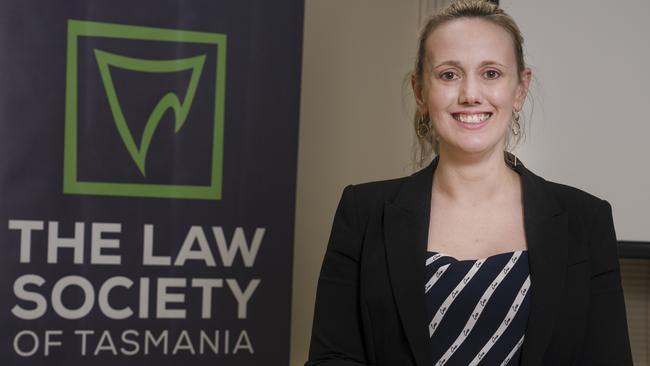
She also said the Law Society “remains strongly opposed” to mandatory minimum sentences for one-punch assaults or any other crimes.
“Our judiciary is very capable of appropriately sentencing those found guilty of crimes, based on all of the circumstances of a case, without direction or minimum penalties being imposed by government,” she said.
Her sentiments were echoed by another University of Tasmania legal academic, Helen Cockburn.
“There is no evidence that the imposition of mandatory minimum sentences acts as a deterrent, and no evidence that they reduce crime rates,” she said.
LOCKOUT LAWS
Following the deaths of two teenage boys at Kings Cross from one-punch assaults, Sydney introduced strict laws locking out patrons from returning to clubs, pubs and bars from 1.30am, and calling last drinks at 3am.
The changes were controversial, with concerns the laws damaged Sydney’s night-life, and were largely scrapped earlier this year despite reports of huge drops in assaults.
Would introducing similar restrictions of night venues work in Tasmania?
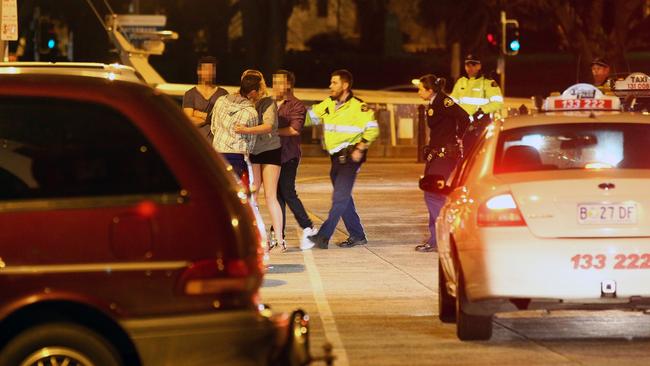
Dr Cockburn, who is currently researching grievous bodily harm and wounding in Tasmania, said changes in how nightclubs and bars operated could have an effect, given 50 per cent of one-punch cases occurred in public areas and 60 per cent of cases involved intoxicated offenders.
She said reducing opening hours, limiting numbers inside venues or restricting the service of alcohol “could have beneficial effects in reducing violence and serious injuries”.
“Do we also sanction the venue where an incident occurs, and not just the offender?
“At least we should be thinking differently about the problem,” she said.
Ms Garwood said she supported a recent call by Police Association president Colin Riley to reconsider licensing laws for venues operating after midnight.
“(This could include) better resourcing for enforcing the responsible service of alcohol, stricter policing by inspectors of the Licensing Commission from 2am, and potentially limiting the opening hours of venues for those who remain open until 4 or 5am,” she said.
Coward punches in recent history
February 2019
Beau Wayne Kelly, then 18, punches University of Tasmania academic Stewart Williams, 54, in the face at Mobius Lounge Bar. Mr Williams dies in hospital six days later. Kelly is jailed a minimum two-and-a-half years after pleading guilty to manslaughter.
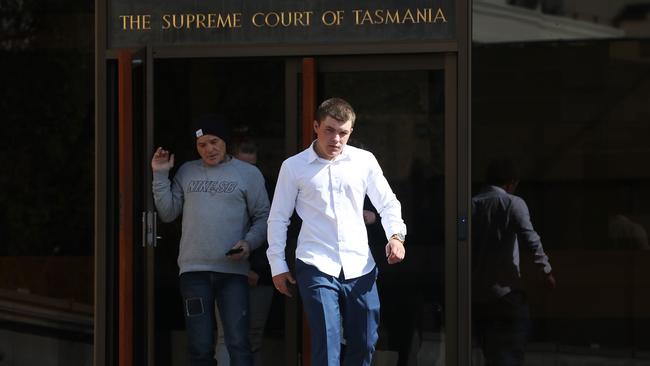
August 2017
Joseph William Freeman, 25, punches a reveller once to the head, without warning, near a taxi rank on George Street, Launceston. His victim’s head hits the footpath and is placed in an induced coma with intracranial bleeding. Freeman is jailed a minimum nine months after pleading guilty to assault.
October 2016
Joshua Paul Barrow, 21, punches a teenager on the dancefloor at Ivory Bar. The youth suffers a broken jaw and undergoes surgery the next day with titanium plates inserted. Barrow serves no jail time, with a 12-month suspended sentence and 240 hours of community service after pleading guilty to grievous bodily harm.
September 2016
Peter Glenn Howlett, 25, punches a man’s face outside the Lower House in Despard Street, breaking his jaw. He is jailed a minimum of one year after being found guilty by a jury of grievous bodily harm.
December 2015
Elsawi Ahmed Eldayar, 21, punches a friend on Elizabeth Street near Republic Bar and leaves him unconscious on the ground. The victim is found by tourists and is hospitalised in intensive care with a fractured skull and intracranial bleeding. Eldayar is jailed a minimum of nine months after pleading guilty to one count of causing grievous bodily harm.

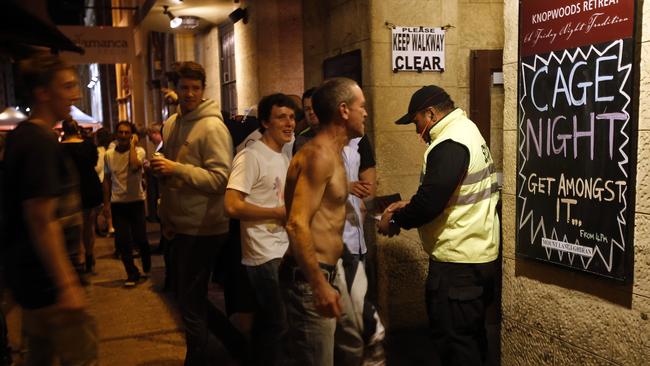
Add your comment to this story
To join the conversation, please log in. Don't have an account? Register
Join the conversation, you are commenting as Logout
Romance boom: Tassie author pens 100th book
Tasmania’s Ris Wilkinson became an author at 44 with romance juggernaut Mills & Boon. At 66, she’s penning her 100th book as Melanie Milburne – as writers converge on Hobart for a national event.
New car hire app makes Tassie roadtripping a breeze
Cramming the island’s wonders into just three days might sound bonkers, even impossible – but I set out to try, with the help of Tassie’s newest Airbnb-like car share service.